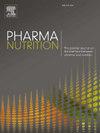Vitamin D does not mitigate monocyte adhesion to vascular endothelial cells in an in vitro pro-inflammatory model
IF 2.4
Q3 NUTRITION & DIETETICS
引用次数: 0
Abstract
Vitamin D deficiency has been associated with cardiovascular risk factors, including endothelial dysfunction, a critical step in the pathogenesis of atherosclerosis. This study aimed to evaluate the effects of 1α,25-dihydroxycholecalciferol (VD3) on monocyte (THP-1) adhesion to human umbilical vein endothelial cells (HUVECs) under a pro-inflammatory condition. Endothelial cell activation was induced with tumor necrosis factor-alpha (TNF-α, 100 ng/mL), and cells were treated with VD3 at concentrations ranging from 0.1 to 100 nM. Monocyte adhesion was quantified spectrophotometrically, while levels of vascular cell adhesion molecule 1 (VCAM-1), E-selectin, and cluster of differentiation 15 (CD15) were assessed using ELISA. TNF-α significantly increased THP-1 cell adhesion to HUVECs compared to the control group (p < 0.05). Co-treatment with VD3 at all concentrations tested did not reduce monocyte adhesion, showing levels similar to the TNF-α only group, and significantly higher than the negative control (p < 0.05). Furthermore, TNF-α significantly upregulated VCAM-1 expression (p < 0.05), which was unaffected by VD3. E-selectin and CD15 levels remained unchanged under all experimental conditions. These results do not support a modulatory role for VD3 in the early stages of atherogenesis, specifically in reducing endothelial cell activation and monocyte adhesion. While vitamin D has shown beneficial effects in other aspects of cardiovascular health, its impact on vascular inflammation and adhesion processes remains uncertain and needs further investigation.
在体外促炎模型中,维生素D不能减轻单核细胞对血管内皮细胞的粘附
维生素D缺乏与心血管危险因素有关,包括内皮功能障碍,这是动脉粥样硬化发病机制的关键步骤。本研究旨在评价促炎条件下1α,25-二羟基胆骨化醇(VD3)对单核细胞(THP-1)粘附人脐静脉内皮细胞(HUVECs)的影响。用肿瘤坏死因子-α (TNF-α, 100 ng/mL)诱导内皮细胞活化,并用浓度为0.1至100 nM的VD3处理细胞。采用分光光度法定量单核细胞粘附,ELISA法检测血管细胞粘附分子1 (VCAM-1)、e -选择素(E-selectin)和CD15 (cluster of differentiation 15)水平。与对照组相比,TNF-α显著增加THP-1细胞对huvec的粘附(p <; 0.05)。与所有测试浓度的VD3共同处理均未降低单核细胞粘附,其水平与仅TNF-α组相似,并显著高于阴性对照组(p <; 0.05)。此外,TNF-α显著上调VCAM-1的表达(p <; 0.05),而VD3不受影响。E-selectin和CD15水平在所有实验条件下均保持不变。这些结果不支持VD3在动脉粥样硬化早期阶段的调节作用,特别是在降低内皮细胞活化和单核细胞粘附方面。虽然维生素D在心血管健康的其他方面显示出有益的作用,但其对血管炎症和粘连过程的影响仍不确定,需要进一步研究。
本文章由计算机程序翻译,如有差异,请以英文原文为准。
求助全文
约1分钟内获得全文
求助全文
来源期刊

PharmaNutrition
Agricultural and Biological Sciences-Food Science
CiteScore
5.70
自引率
3.10%
发文量
33
审稿时长
12 days
 求助内容:
求助内容: 应助结果提醒方式:
应助结果提醒方式:


